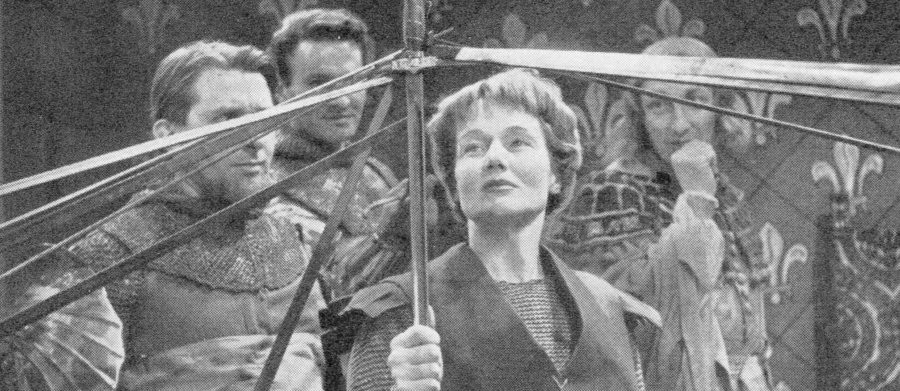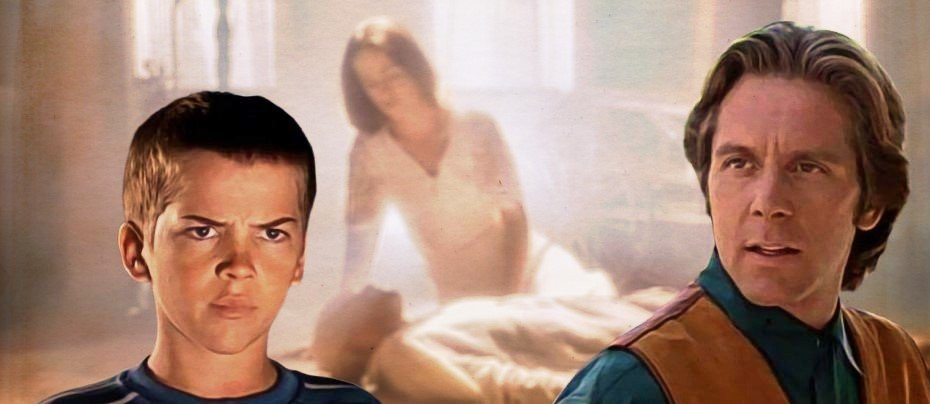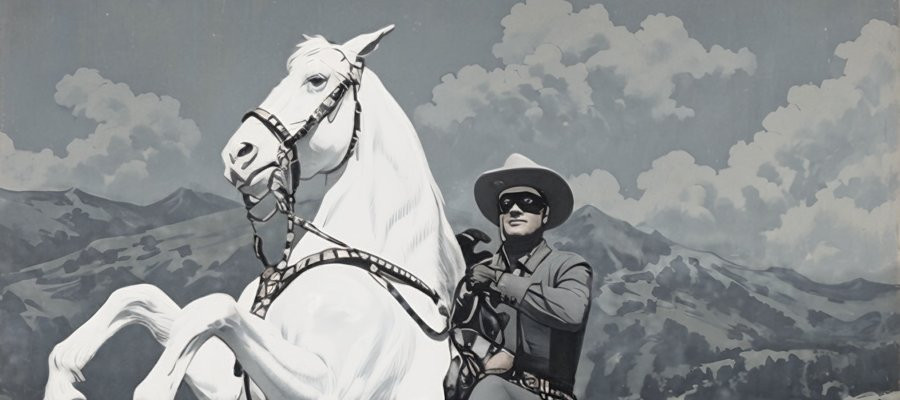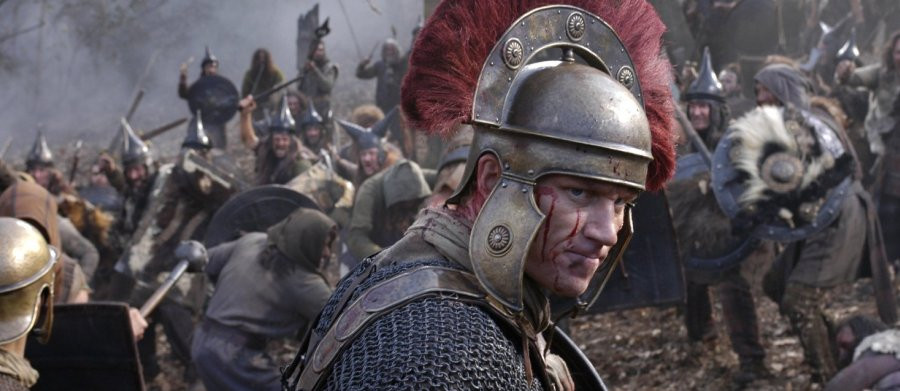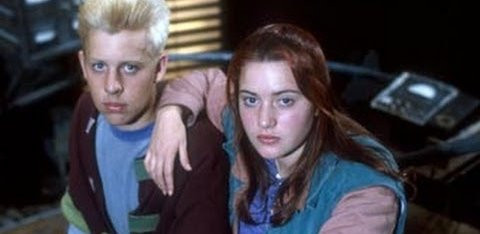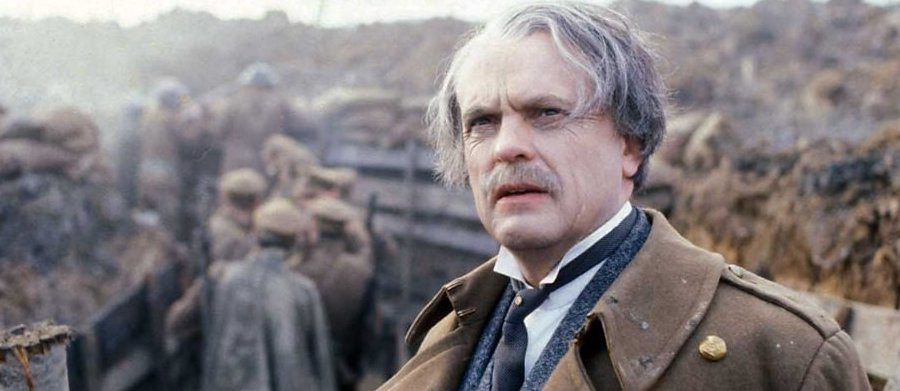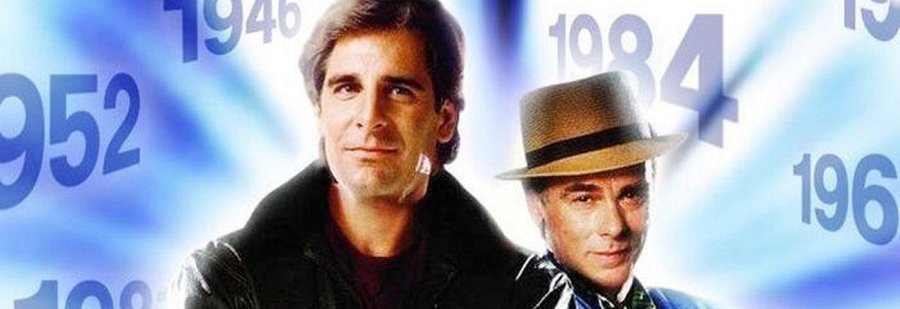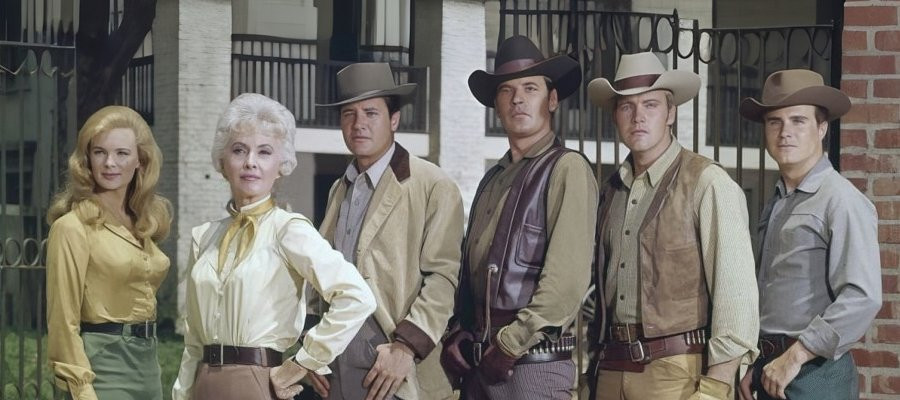
Son of the Morning Star
1991 - United StatesOther than Waterloo, no battle has generated more discussion than the defeat of Lieutenant Colonel George Armstrong Custer at the Little Big Horn in 1876. News of the massacre of five troops of his 7th US Cavalry at the hands of "uncivilised" tribes came as a profound shock to Americans celebrating the Centenary of their Declaration of Independence with a huge exhibition dedicated to the industrial and technological progress of their country.
Custer himself has been portrayed many times and in many different ways on the big screen: Errol Flynn played him as a self sacrificing hero in 'They Died With Their Boots On,' Ronald Reagan as a dim sidekick in 'Santa Fe Trail,' Robert Shaw as a tightly controlled psychopath in 'Custer of the West,' and Richard Mulligan as comedy relief in 'Little Big Man.' Yet most historians agree that the most authentic portrait was on television - from Gary Cole in Son of the Morning Star, a two part "miniseries." They also tend to commend the production as a whole for its accuracy.

Cole and Son of the Morning Star both deserve their high reputations. One might quibble about some minor points, but original author Evan S Connell, adaptor Melissa Mathison (the highly respected screenwriter of 'ET' among other films), and the costume, props, and design departments obviously went to great lengths to get things right. Many of the extras were dedicated re-enactors and this comes through in the casual details. The 7th Cavalry feels like a frontier regiment at a time of budget cuts. A brief training montage sums up a lot of the realities of service life with complete credibility.

As for Cole himself, his Custer is one of the highlights of a quietly spectacular career. He tends to be near the top of the lists of most informed observers when they discuss actors who deserve to be bigger stars than they are. Everyone agrees he is great, and he has on several occasions been given the lead in really good shows, notably American Gothic and Wanted, but for some reason none of them ever caught fire commercially. Public taste is sometimes inexplicable.
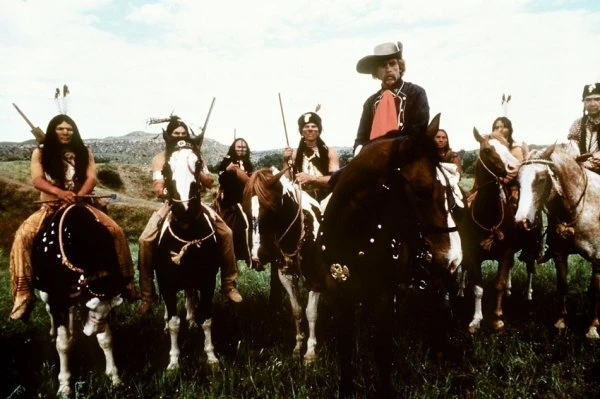
His portrayal of Custer is far from sympathetic, but he also conveys the restless energy that made Custer a very effective battlefield commander. That Custer was also an egomaniac, socially insecure, politically naïve, and prone to mood swings seems well established. It has been said very wisely that a man stops maturing at the age when he becomes famous. Custer had become a celebrity as the youngest Major General in the Union Army at 24, but this was only a temporary Civil War rank. He had trouble adjusting to peacetime service with the Regular Army rank of Lieutenant Colonel, which he held for ten years without promotion. There was something of a spoiled child about him and Cole captures this perfectly.
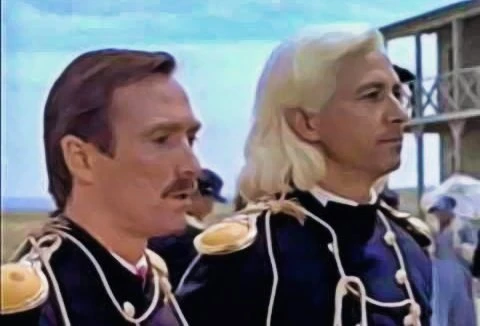
Almost as good is the ever watchable David Strathairn as Custer's discontented Senior Captain, Frederick Benteen. He gives a masterclass in passive aggression. Benteen had himself commanded a regiment in the Civil War and held Custer in undisguised contempt. For his part Custer seems to have cared little about what most of his officers and men thought of him, and retreated to a tight circle of family and friends - both his brother and brother-in-law were troop commanders in the regiment he commanded. As a result, there were two distinct factions in the 7th Cavalry. Some maintain that had catastrophic consequences at the Little Big Horn, but it probably made little difference because Benteen's actions on the day were dictated by events.
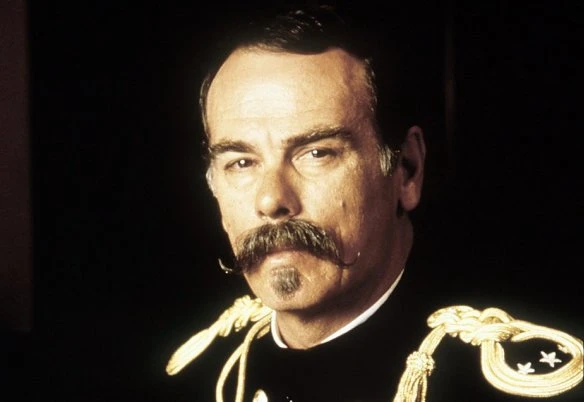
The American Generals Sheridan, Sherman, and Grant are painted as the villains of the piece, but there are nice shades of distinction between them in their plotting to dispossess the Indians. Sheridan (Dean Stockwell, always great value), in effect chief of operations during the Black Hills War and Custer's long time protector, is aggressive and ruthless in his determination to solve the Indian "problem" once and for all. Sherman (George Dickerson), professional head of the US Army at the time, is more ambivalent but ultimately just as ruthless. Grant (Stanley Anderson), then President and Commander-in-Chief, is genuinely conflicted, even if that made no difference in the end. The brutal truth is that there were more white men than Indians and they wanted the Indians' land (although if we are being strictly fair, the actual Battle was fought on the territory of the Crow tribe, who served as scouts for the US Cavalry against the Sioux, Arapaho, and Northern Cheyenne then trespassing on the Crow land).
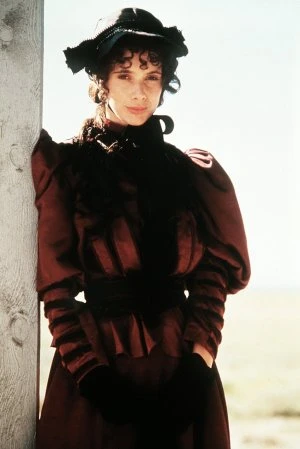
Rosanna Arquette plays Custer's adoring wife, Elizabeth, known as Libbie. If her adoration may seem a little too literal for modern tastes, Libbie Custer really did hero worship her husband, both living and dead. She dedicated her long widowhood to defending his reputation. Arquette as Libbie also provides half of a voice over narration. The other half is voiced by Buffy Sainte-Marie as a controversial Cheyenne witness to the Battle, Kate Big Head, who is played by another actress on screen. The theory is that the narrations were to provide balance, but Libbie's contributions are so hagiographic as to be ridiculous, so it is clear our sympathies are meant to be with the Indians (as this reviewer's are, not least in referring to them as Indians rather than "Native Americans," which is not their preferred term for themselves).

Rodney A Grant has presence as Crazy Horse, even if he is given relatively little to do. Terry O'Quinn seems about right as the US field commander, Brigadier General Alfred Terry, a sensible man who lost control of his subordinate.
The cinematography, combined with the use of some very appropriate locations in Montana and South Dakota, provide a wonderful aesthetic experience in its own right. It is a handsome production, especially in some of its "Magic Hour" photography: Custer was known as "Son of the Morning Star" to some Indians for the very unpoetical reason that he liked to attack at first light when the Indians were least prepared. The battle scenes are realistic and it is only if one is looking that one sees that they are relatively small scale. That is good directorial technique, but it does mean the viewer has little sense of the whole.
While acknowledging the script's overall accuracy, the question must still be asked if some of its assumptions are entirely fair? In 1991 fashionable history was decidedly pro-Indian (Dances with Wolves had come out the year before) and especially anti-Custer. Historiography since then has become more nuanced.
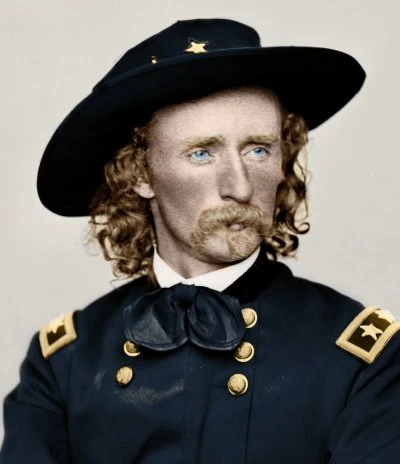
Playing "Devil's Advocate" to a considerable extent, it is possible to put together a case in Custer's defence. He had achieved his success in the American Civil War as a cavalry commander, a role that demanded the ability to take great risks, relying on speed, surprise, self confidence, energy, and aggression to force victory. Custer had demonstrated he had these qualities in abundance, which was why he had been selected to command the main strike force in the 1876 campaign.
In this context, decisions that might appear insane in hindsight may be justifiable when viewed from his perspective at that moment on the information he had. For example, despite what armchair strategists might say, Custer was undoubtedly right to refuse to slow his movements by accepting an offer of Gatling guns, which, in any case, he probably would have had no time to deploy even if they had kept up. His biggest mistake was to split his command in a wide pincer movement, but it must not be forgotten that his greatest fear was that the Indians would escape him, and that he had used similar tactics successfully at the Washita River. Had those pincers closed, Custer would indeed have had his decisive victory.

That he did not was due to a remarkable tactical and organisational sophistication on the part of the Indians themselves, especially a Chief named Gall who is not mentioned in the production. They seem to have realised almost immediately that the initial attack by the left pincer, led by Major Marcus Reno, was not the whole threat. They therefore forced Reno back, and then switched men between flanks very rapidly, using what a Staff College graduate would call "interior lines," to cut off the right pincer, the five companies under Custer's direct command. It is surprising that such a pro-Indian script does not pick up on this point.
The script is also unfair to give air time to the implication - much touted by Custer fans in the aftermath of the Battle but discredited by most competent authorities ever since - that the seven remaining troops under Reno and Benteen could still have ridden to Custer's relief in this situation. That is extremely unlikely, to put it mildly. Reno's battalion was already immobilised by heavy casualties, and he had done well to establish a defensive position that prevented him from being massacred like Custer. Even if he had been able to move, the Indians could easily have switched men between flanks again, and the rest of the 7th Cavalry, caught in the open, would have shared the fate of Custer and the five troops with him.

The script is right that Custer, Reno, and Benteen were all deeply flawed characters, but all were also competent military professionals. It is wrong to suggest that any of them were idiots. It was not so much that Custer lost than that the Indians won.
The production does not really engage with this. Indeed, one of its weaknesses is that it is not very clear about what is happening in the battle. This may be an accurate reflection of the confusion felt by Reno and Benteen, but perhaps it goes too far when it suggests Custer did not have a proper battle plan. He did and it was a good one according to General Nelson Miles, a particularly effective Indian fighter whose professional opinion demands respect. Perhaps Custer's real fault was his failure to communicate that plan to Reno and Benteen. That was the basis of their successful defence of their actions, but, of course, we do not know what Custer might have said he told them. As Miles remarked, it is easy to kick a dead lion.
Seen this show? How do you rate it?
Seen this show? How do you rate it?
Published on March 24th, 2021. Written by John Winterson Richards for Television Heaven.


